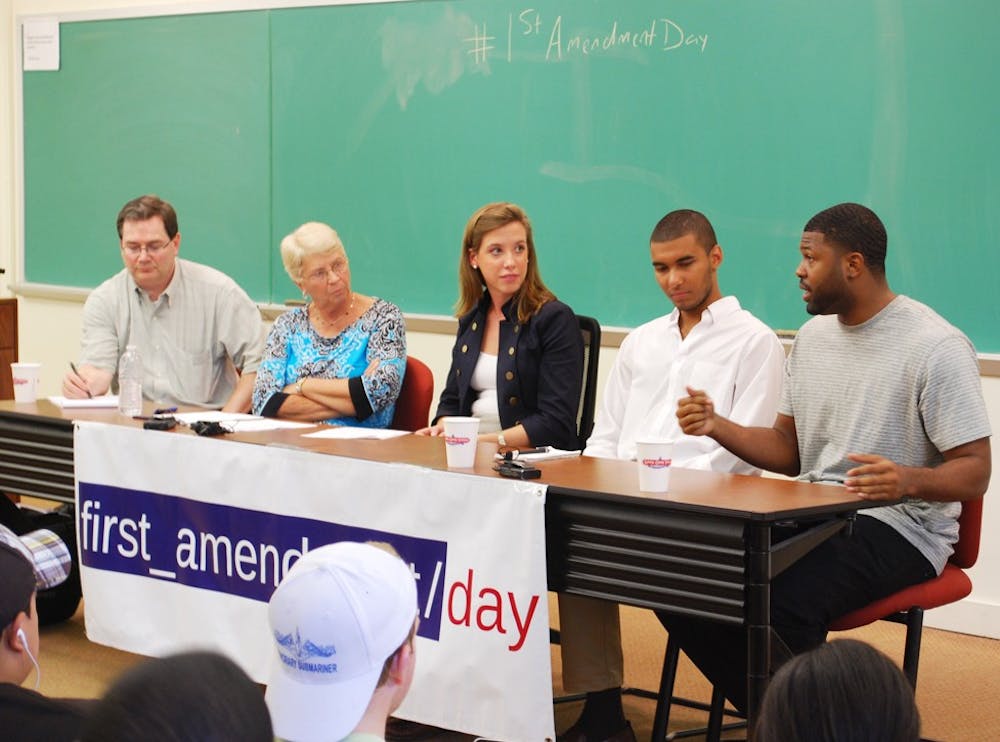Nearly one year after the UNC football program suspended players’ Twitter accounts, the legality of the decision is being revisited by the campus community.
To mark UNC’s First Amendment Day, a panel of two local journalists, a former UNC football player and a journalism professor discussed the program’s decision and its implications.
The panelists for the event, “Football and the First Amendment at Carolina,” said there is a fine line between monitoring and banning players’ use of social media.
“It’s a slippery slope and there’s a real danger in closing off one’s speech and thought,” said Deunta Williams, former UNC safety.
In October 2010, players were banned from Twitter after tweets surfaced that suggested certain players were receiving improper benefits, prompting the NCAA investigation.
Williams, who was in his senior season last fall, said he was not as affected by the ban because he did not use Twitter regularly.
He said he agreed with the program’s decision to invoke the ban because it was in the team’s best interest.
“Why not just cut off the speculations? It’s the smartest thing we did during the investigation,” Williams said.
“At 18 years old, not everyone is responsible enough to know that tweeting about other people’s news infringes on their rights,” Williams said.
Some have considered the ban a direct violation of players’ First Amendment rights, panelists said, adding that Fourth Amendment rights protecting against unreasonable search and seizure also could have been violated.
The two journalists, Jonathan Jones, senior writer for The Daily Tar Heel, and Dan Kane, an investigative reporter for the (Raleigh) News & Observer, both expressed regrets over the suspension.
“It’s a social phenomenon, a great communication tool but people don’t realize they’re sharing with everyone,” Kane said.



